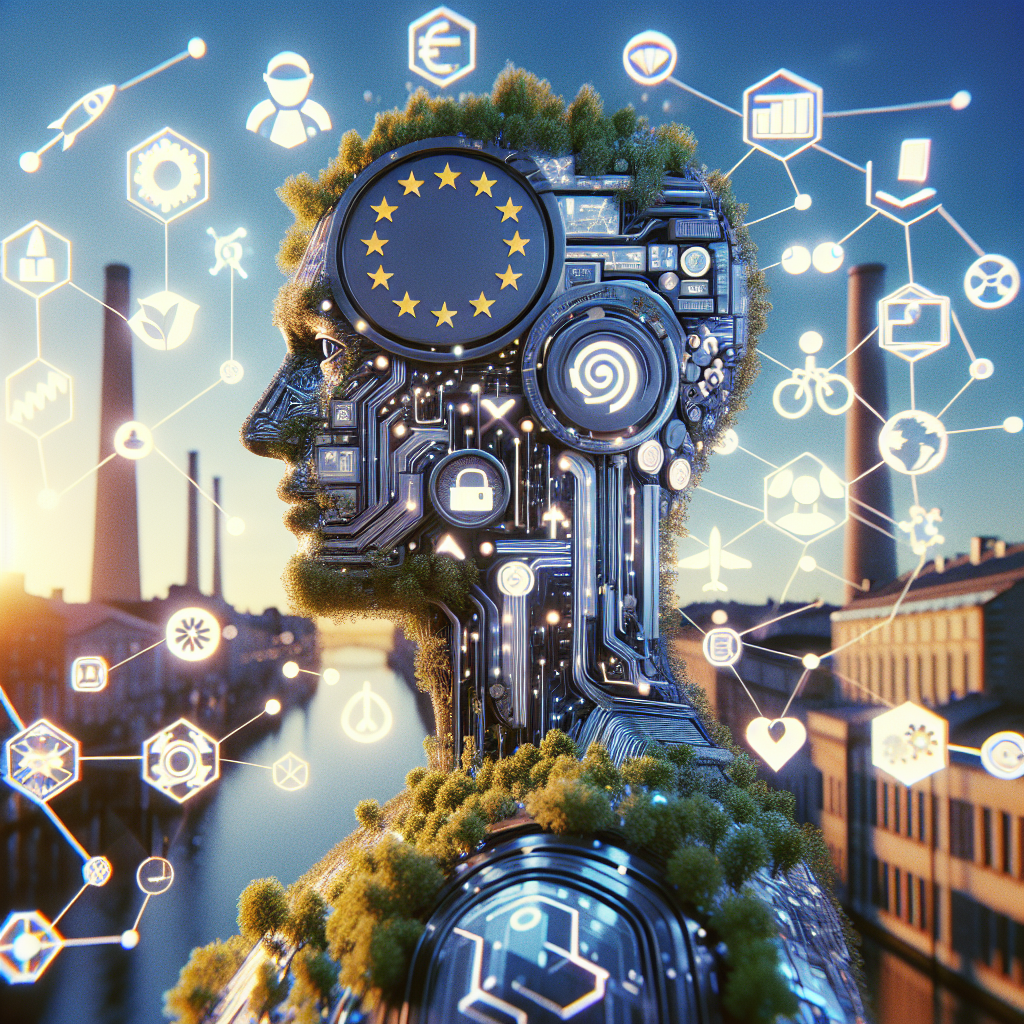The European Union has recently unveiled its AI Pact, a voluntary initiative aimed at fostering responsible artificial intelligence development and deployment. As an association dedicated to promoting AI and environmental engineering, we at GreenMinds find this development both intriguing and potentially concerning. Let’s delve into the key aspects of this pact and its implications for the future of AI in Europe.
What is the EU AI Pact?
The EU AI Pact is a voluntary agreement that seeks to support the future implementation of the AI Act, which entered into force on August 1, 2024[1]. This initiative invites AI developers from Europe and beyond to comply with key obligations of the AI Act ahead of its full application. The pact aims to:
- Address risks specifically created by AI applications
- Prohibit AI practices that pose unacceptable risks
- Determine a list of high-risk applications
- Set clear requirements for AI systems in high-risk applications
- Define specific obligations for deployers and providers of high-risk AI applications
The pact has garnered support from over 115 companies, including major players like Google, Microsoft, OpenAI, and Amazon[4].
Environmental Aspects of the Pact
Unfortunately, the EU AI Pact appears to lack explicit provisions addressing the environmental impact of AI systems. This oversight is particularly concerning given the significant energy consumption and resource requirements associated with large-scale AI models and infrastructure.
While the AI Act itself mentions that providers may create and apply codes of conduct that can include voluntary commitments regarding environmental sustainability, these are not mandatory requirements[6]. This approach falls short of addressing the urgent need to develop and deploy AI in an environmentally responsible manner.
The Polemic: Why Have Some Giants Refused to Sign?
Despite widespread support, some major tech companies have notably abstained from signing the AI Pact. Apple and Meta, for instance, are conspicuously absent from the list of signatories[2][4]. This raises questions about their motivations and concerns regarding the pact.
Possible reasons for their reluctance might include:
- Regulatory concerns: Companies may be wary of committing to voluntary measures that could later become binding regulations.
- Competitive advantage: Some firms might believe that non-participation allows them greater flexibility in AI development.
- Existing compliance efforts: Meta, for example, stated it wanted to focus its compliance work on the AI Act itself rather than the voluntary pact[4].
- Disagreement with specific provisions: Companies may have reservations about certain aspects of the pact that conflict with their business models or development strategies.
Missed Opportunities and Future Considerations
While the EU AI Pact represents a step towards responsible AI development, it appears to have missed crucial opportunities, particularly in addressing environmental concerns. As an organization committed to the intersection of AI and environmental engineering, we at GreenMinds believe that future iterations of such initiatives should:
- Incorporate explicit environmental provisions: Mandating resource consumption monitoring and transparency for AI systems.
- Encourage sustainable AI practices: Promoting research and development of energy-efficient AI algorithms and infrastructure.
- Foster collaboration: Facilitating knowledge sharing on best practices for environmentally friendly AI deployment.
- Align with climate goals: Ensuring that AI development supports rather than hinders the EU’s broader environmental objectives.
As the AI landscape continues to evolve rapidly, it’s crucial that policymakers, industry leaders, and environmental advocates work together to ensure that AI progress aligns with our collective responsibility to protect the planet.
References:
[1] https://digital-strategy.ec.europa.eu/en/policies/regulatory-framework-ai
[2] https://9to5mac.com/2024/09/26/apple-rejects-new-ai-pact-in-eu-despite-support-from-openai-google-more/
[3] https://commission.europa.eu/news/ai-act-enters-force-2024-08-01_en
[4] https://techcrunch.com/2024/09/25/early-sign-ups-to-eus-ai-pact-include-amazon-google-microsoft-and-openai-but-apple-and-meta-are-missing/
[5] https://www.politico.eu/article/meta-apple-snub-eus-voluntary-ai-pledge/
[6] https://sustain.algorithmwatch.org/en/the-eus-ai-act-dangerously-neglecting-environmental-risks/
[7] https://digital-strategy.ec.europa.eu/en/policies/european-approach-artificial-intelligence
Oscar Rodríguez, PhD is currently an AI Engineer at LumApps (France). He holds a Ph.D. in Computer and Control Engineering from Politecnico di Torino, with a focus on AI. His expertise includes Knowledge Representation and Reasoning, Natural Language Processing (LLMs) and Machine/Deep Learning. As president of Greenminds, he applies AI to drive sustainability initiatives.

Leave a Reply